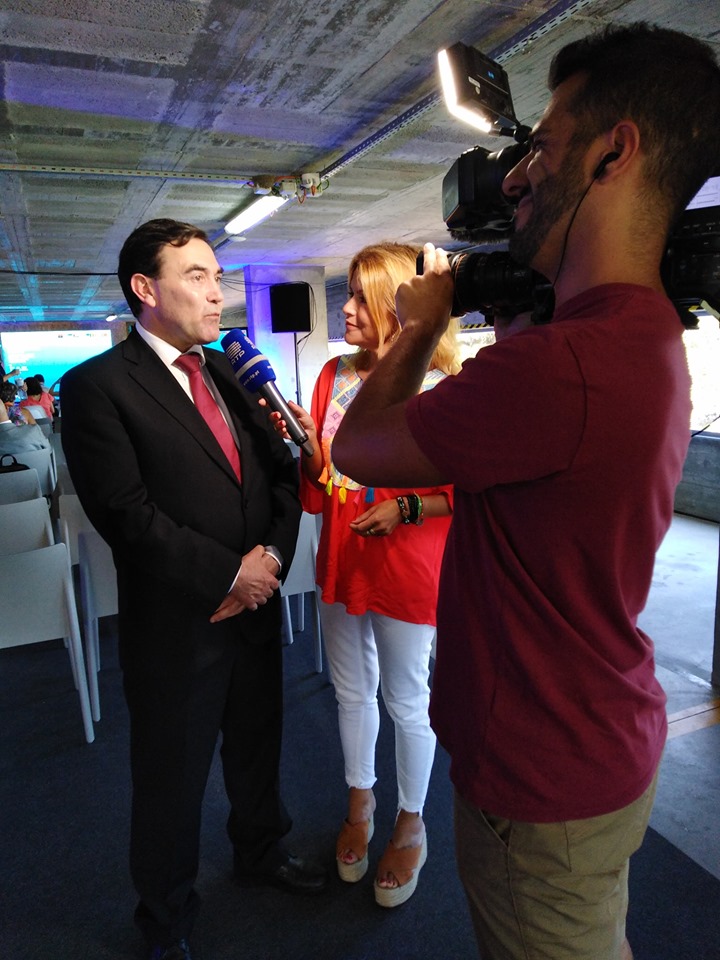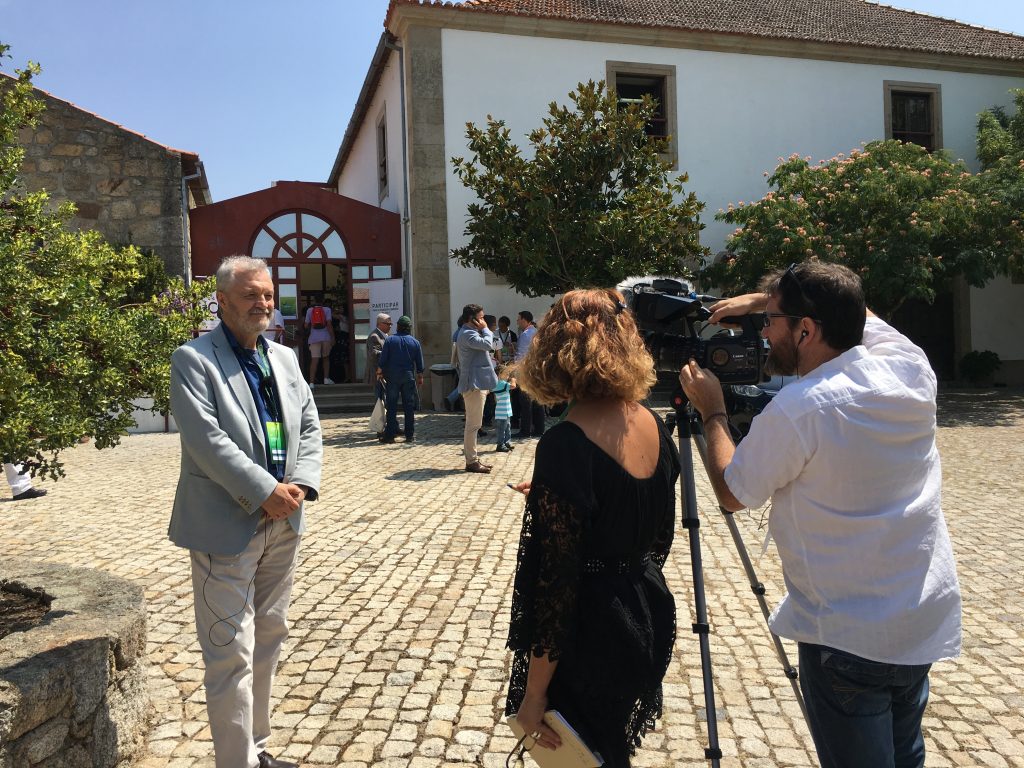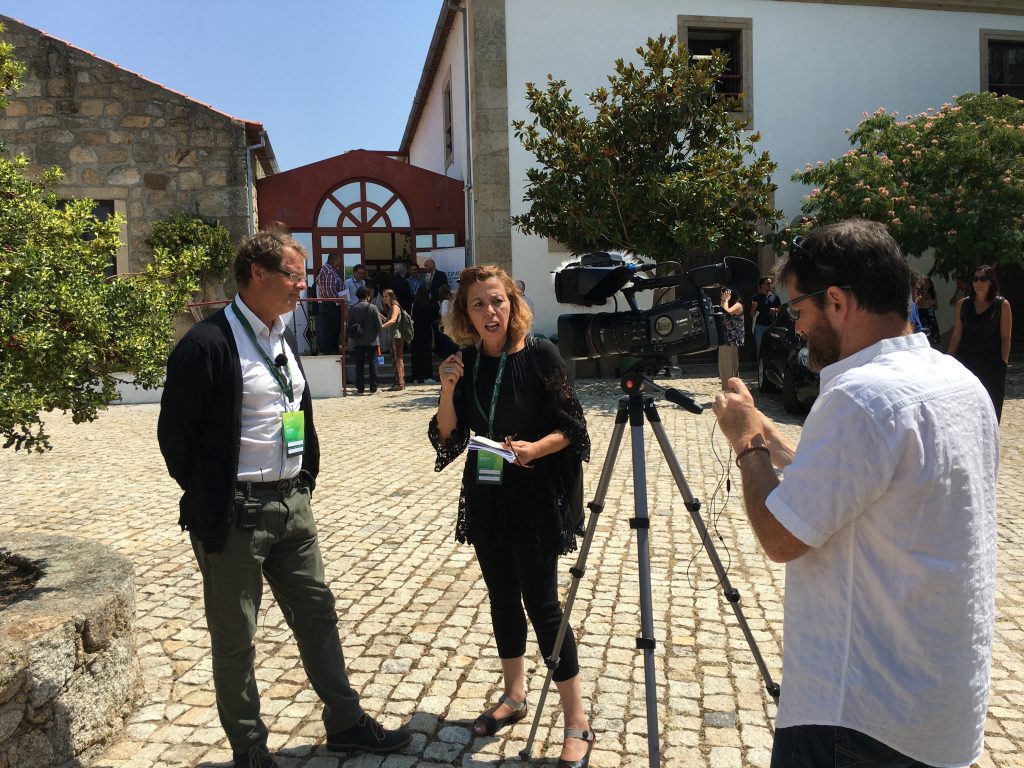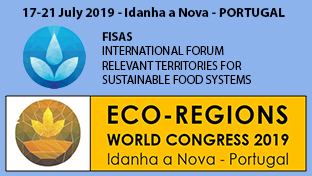The Congress was held within the context of the “FISAS – International Forum on Relevant territories for sustainable food systems”.
FISAS
INTERNATIONAL FORUM RELEVANT TERRITORIES FOR SUSTAINABLE FOOD SYSTEMS
Food is at the center of the debate on sustainability in the world. It will not be possible to achieve most of the Sustainable Development Goals and provide a healthy diet for the world population without taking into account the natural resources of the Planet.
The global food system is, therefore, in need of an urgent transition. Such transition means actively promoting local food systems based on family farming and sustainable production methods that preserve and promote biodiversity, traditional knowledge and healthy diets. Change is all the more urgent as the impacts of climate change become more pronounced.
In this context, the International Forum Relevant Territories for a Sustainable Food Systems, taking place in Idanha-a-Nova, Portugal, between July 17th and 21st, 2019, arises as a response to the need to define a methodology for territorial intervention that is capable of coherently articulating the various stakeholders and their knowledge and initiatives in progress for the promotion of sustainable food systems.
The Forum will be a diverse space hosting a series of knowledge exchange and discussions with the aim to develop policy recommendations and cross-cutting knowledge for the construction and implementation of an integrated methodology to promote sustainable food systems within the framework of the Sustainable Development Goals, the CPLP Food Security and Nutrition Strategy and the UN Decade of Family Farming.
ECO-REGIONS WORLD CONGRESS
MULTIFUNCTIONAL CENTER – MONSANTO (Idanha a Nova – Portugal)
An eco-region is the result of a broad territorial intervention where farmers, consumers, tour operators and governmental authorities develop, in a participatory manner, an agreement for the sustainable management of local resources based on organic production and sustainable consumption. Eco-regions are one of the responses to accelerated urbanization, to the abandonment of rural areas, loss of biodiversity, culture and ancestral food knowledge. There are currently dozens of eco-regions in the world.
The execution of this Congress within the scope of FISAS will allow an exchange of knowledge on the challenges in the implementation plans for Eco-Regions in various dimensions: productivity and productive diversification; environment; economy; health and nutrition. At the same time, it will deepen the partnership with the GIAHS initiative in the framework of the implementation of the activity of promoting sustainable food systems in the participating countries.
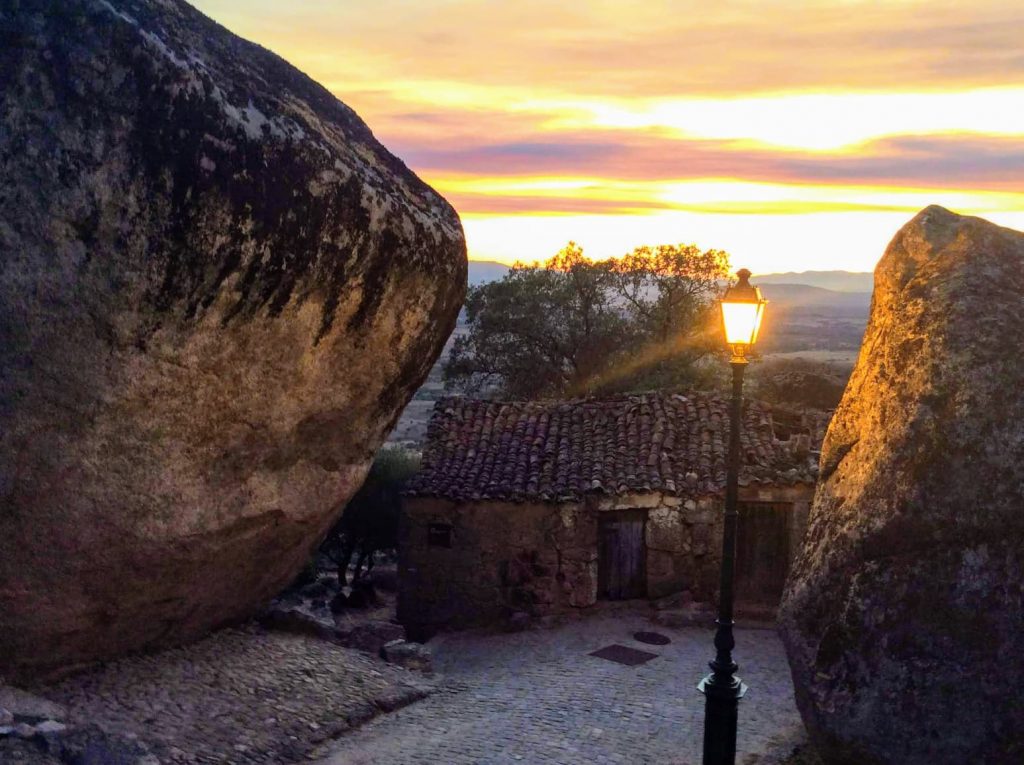
Web of FISAS: www.fisas.org
Facebook of FISAS: https://www.facebook.com/fisas.org
Download the Programme of FISAS in english: http://www.ecoregion.info/wp-content/uploads/2019/07/FISAS_Programme_v10.07_ENG.docx
Download the Programme of the Eco-regions World Congress in english: http://www.ecoregion.info/wp-content/uploads/2019/07/EcoRegions_World_Congress_EN.pdf
Download the description of the FISAS events: http://www.ecoregion.info/wp-content/uploads/2019/07/FISAS_description_ENG.docx
MORE DETAILS
Fifteen years ago, in 2004, the Bio-district Cilento was born, the first in Italy. Since then, the protagonists of the bio-district experience have codified it and exported it to many other territories, thanks to the establishment of the International Network of Bio-districts (IN.N.E.R.). Today (only in Italy!) there are 32 bio-districts (or eco-regions) and others were born in France, Austria, Spain, Portugal. Africa, China, Brazil and Japan are also working on this model of sustainable land management, based on organic agriculture and agroecology.
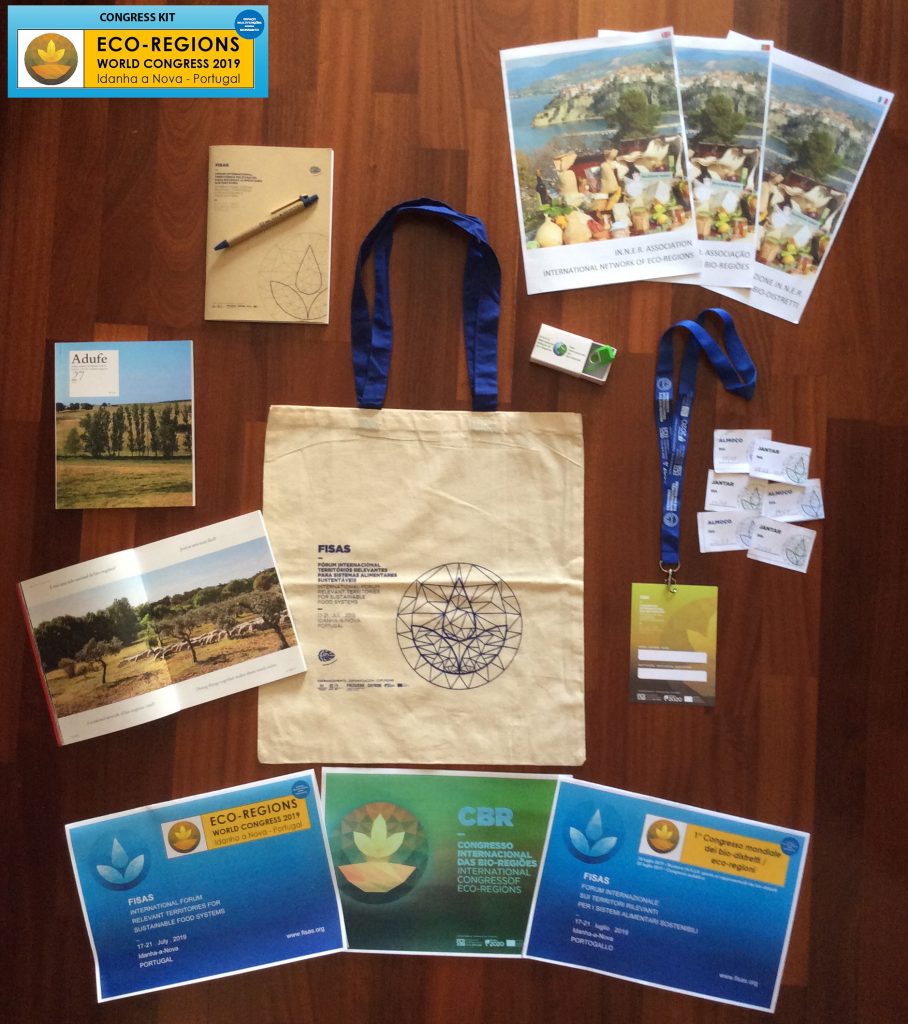
To celebrate 15 years of bio-districts, the first World Congress was organized in Portugal, in Monsanto-Idanha in Nova, promoted within the framework of FISAS – International Forum on relevant territories for sustainable food systems, a framework of major events on sustainable development. In addition to the Eco Regions World Congress, the World Forum for Rural Innovation, the International Seminar on World Agricultural Heritage (GIAHS) and the Laboratory on Local Public Policies for Food Sustainability also took place.
PRESS RELEASE IN ITALIAN, 22 JULY 2019: download it
Information/registration to FISAS: www.fisas.org
Request for information: info@ecoregions.eu
MEMORANDUMS OF UNDERSTANDING SIGNED DURING THE CONGRESS BY INNER:
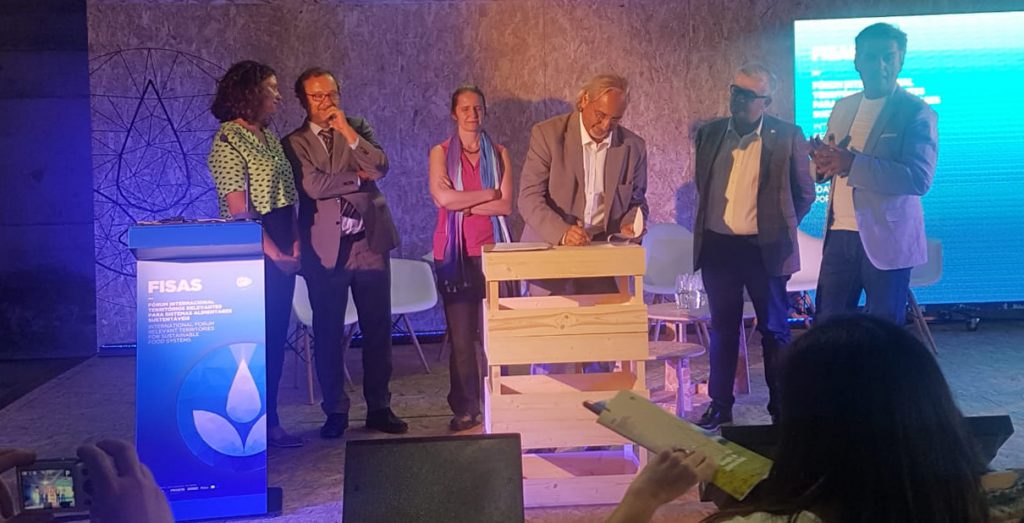
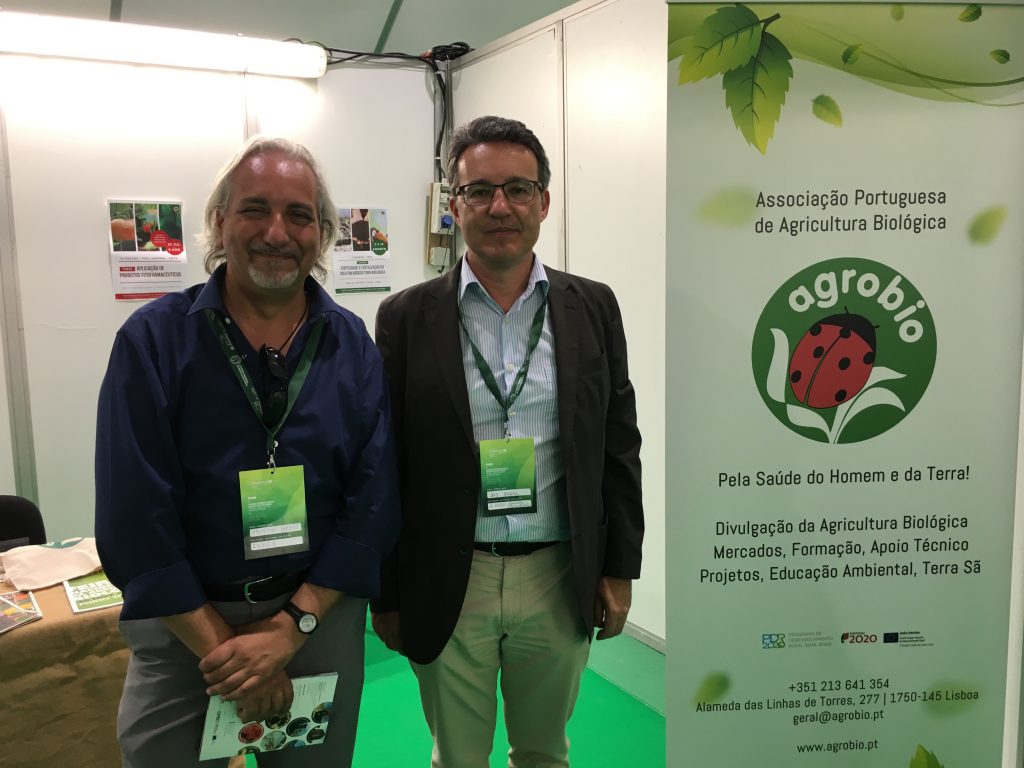
FINAL DECLARATION FISAS (in portuguese)
presentations by the congress speakers:
Presentation by Cilento Bio-district’s representatives (18 July): Emilio Buonomo (President of Bio-district Cilento), Giuseppe Cilento (Mayor of San Mauro Cilento and President of Nuovo Cilento agricultural cooperative), Gianni Rizzo (the”Captain” of the beach club Poseidonia in Ascea Marina).
Custódio De Sousa Olivera (Responsible of IN.N.E.R. Portugal) – Eco-regions in the framework of relevant territories for sustainable food-systems.
Salvatore Basile (President of IN.N.E.R.) – Eco-regions declaration.
Giuseppe Orefice (General Secretary of IN.N.E.R.) – The global strategy for eco-regions
Cesare Zanasi (Uni Bologna, Scientific Committee IN.N.E.R.) – Innovative systems for decision-making and management of eco-regions.
Armindo Giacinto (Mayor of Idanha a Nova) – Bio-região Idanha- a-Nova
Andrea Ferrante (IN.N.E.R. and Via Amerina e Forre Bio-district BoD Member.
Domenico Nicoletti (Scientific CommitteeIN.N.E.R. and Director of the National Park DAlta Murgia) – Alta Murgia National Park – Italy.
Giuliano D’Antonio (President of FONMED, BoD member of IN.N.E.R.) – Semplification of organic certification in Eco-regions.
Maria Carla Del Duca (bio-architect) – Make human settlements inclusive, safe, durable and sustainable.
Ângelo Rocha (President of Saõ Pedro do Sul della Bio-Região ), David Homem (BoD member) – Bio-Região Saõ Pedro do Sul.
Rui Lagoa (Comune di Vila Pouca de Aguiar), Dorinda Sanches (Comune di Boticas) – Bio-região Alto Tâmega.
Aina Calafat (SEAE) – Eco-Distrit Vinalopó Mitjà i Alt, Sur Alicante. Download the Magazine SEAE – Special number on Eco-regions SEAE.
Samia Maamer (General Director of Organic Agriculture – Tunisian Ministry of Agriculture) – Evaluations and plans for the creation of Eco-Regions in Tunisia.
Patrizia Pugliese (MOAN – Mediterranean Organic Farming Network) – Regulatory and policy frameworks for the organic sector in the Mediterranean area. Scarica anche il Rapporto MOAN 2019.
Lamia Latiri Otthoffer (3DFI/Bergerie Nationale of Rambouillet/CEZ–France) – Biodiversity, agroecology and landscape in eco-regions.
Jaime Ferreira (President of AGROBIO Portugal) – The role of the organic farming’s associations in the eco-regions development.
Jostein Hertwig, (Organic Food System Program – OFSP) – An integrated vision: Health, environment and the fight against poverty.
Eduardo Cuoco (Director of IFOAM UE) – Making Europe More Organic
Here are some photos of the Congress day of July 18 (reserved to representatives of eco-regions).
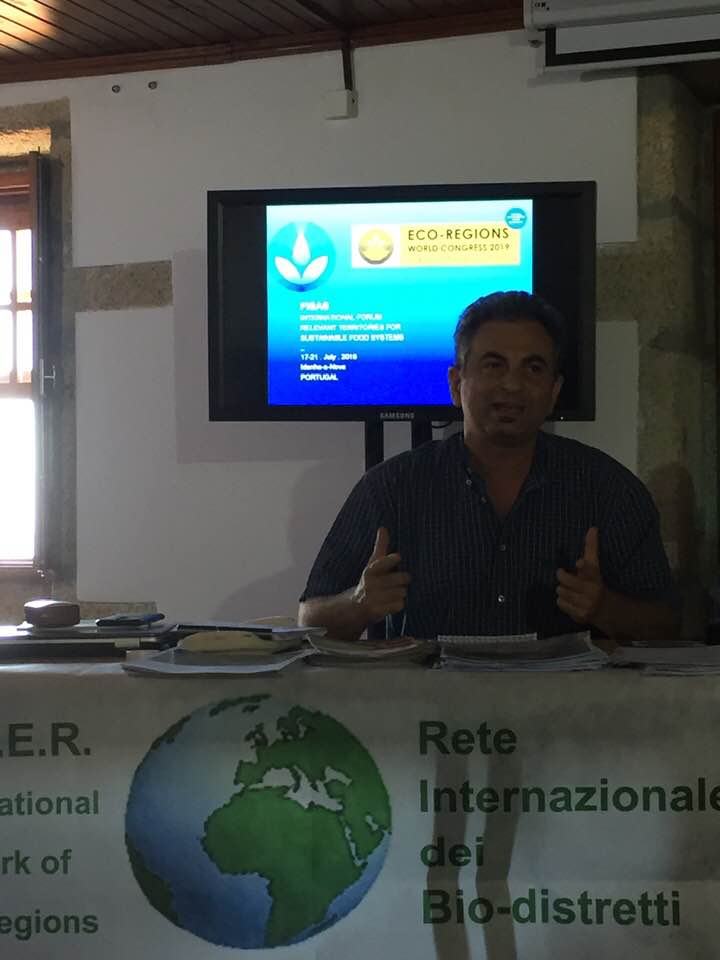
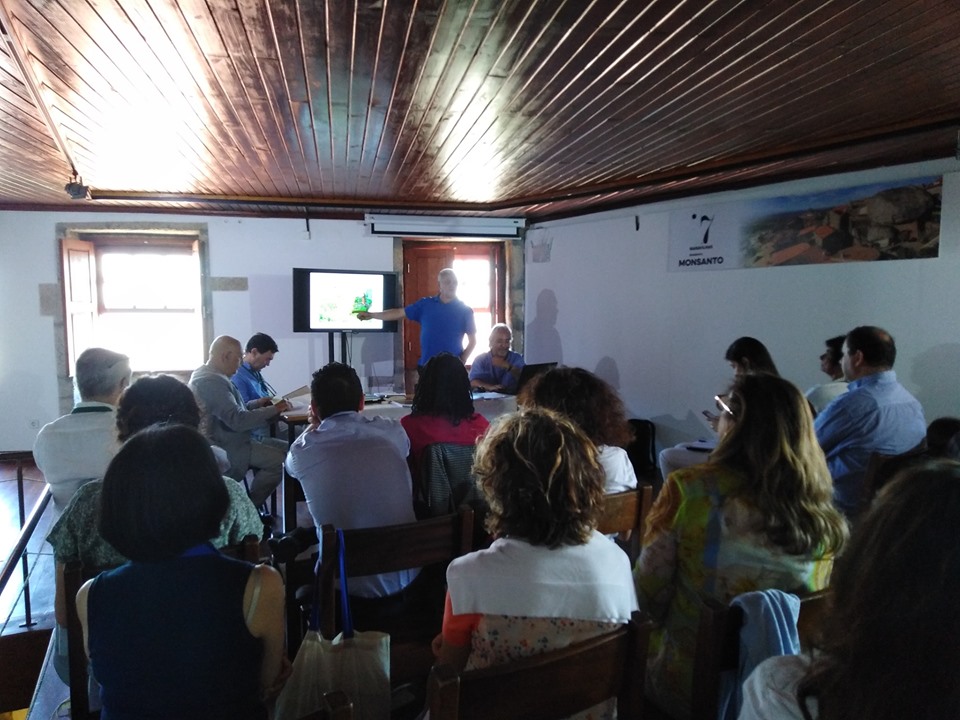
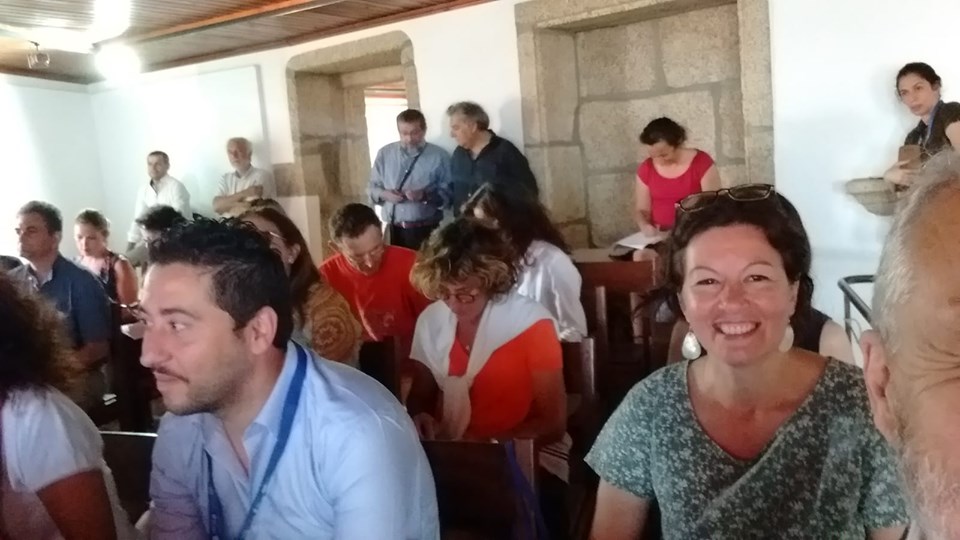
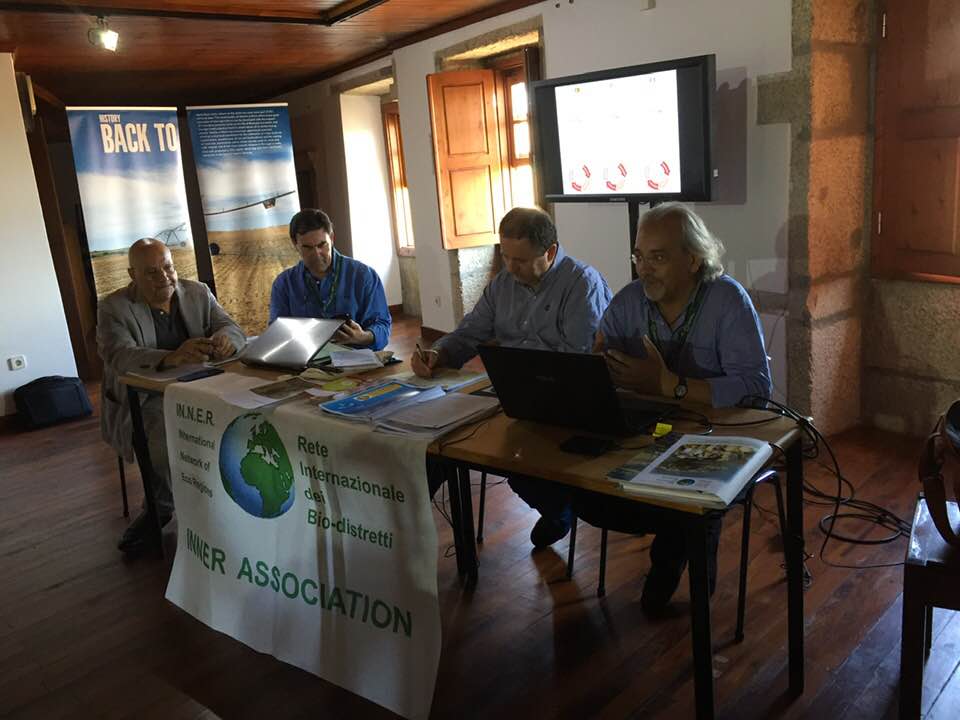
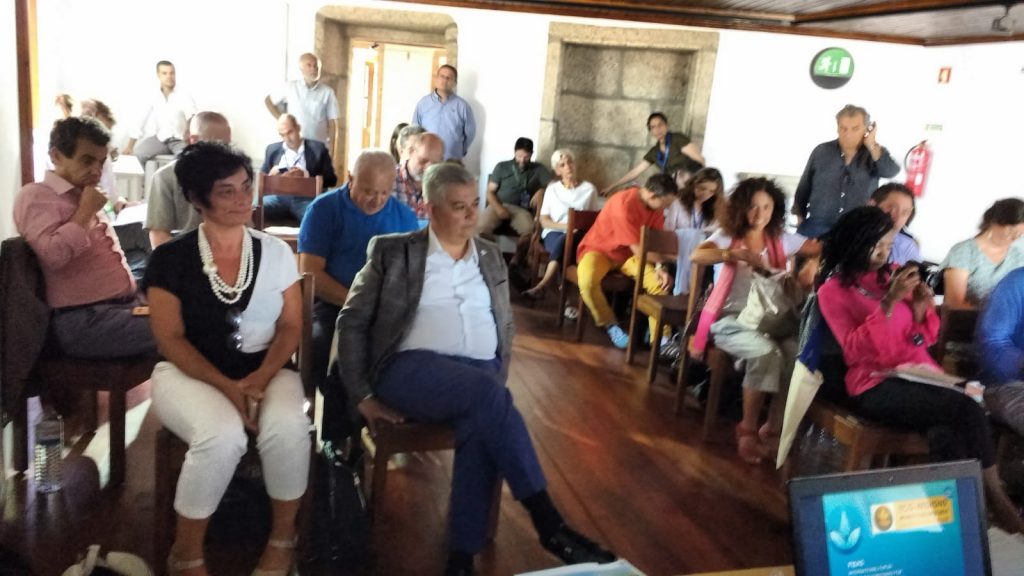
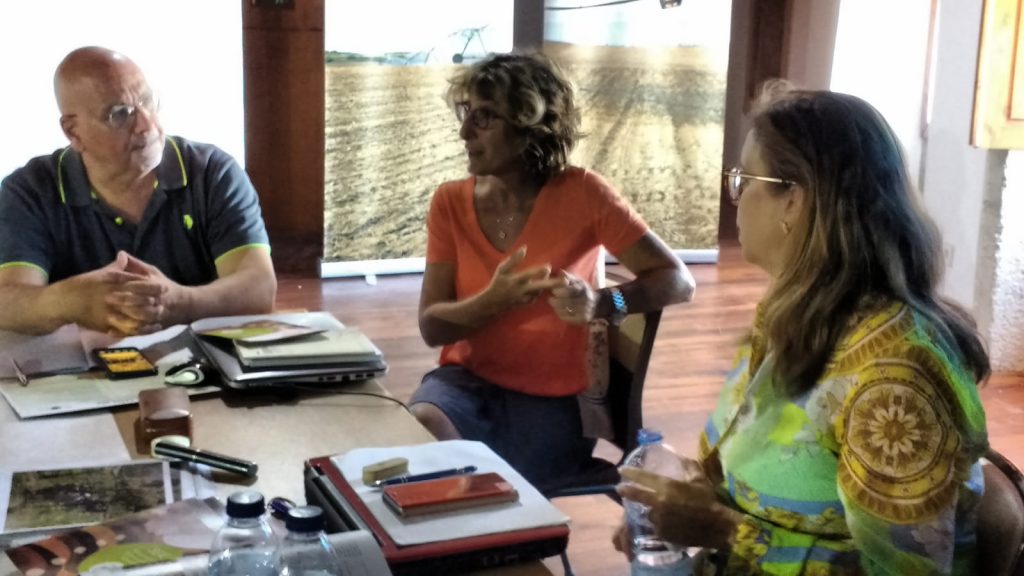
the Bio-Territoires in Tunisia
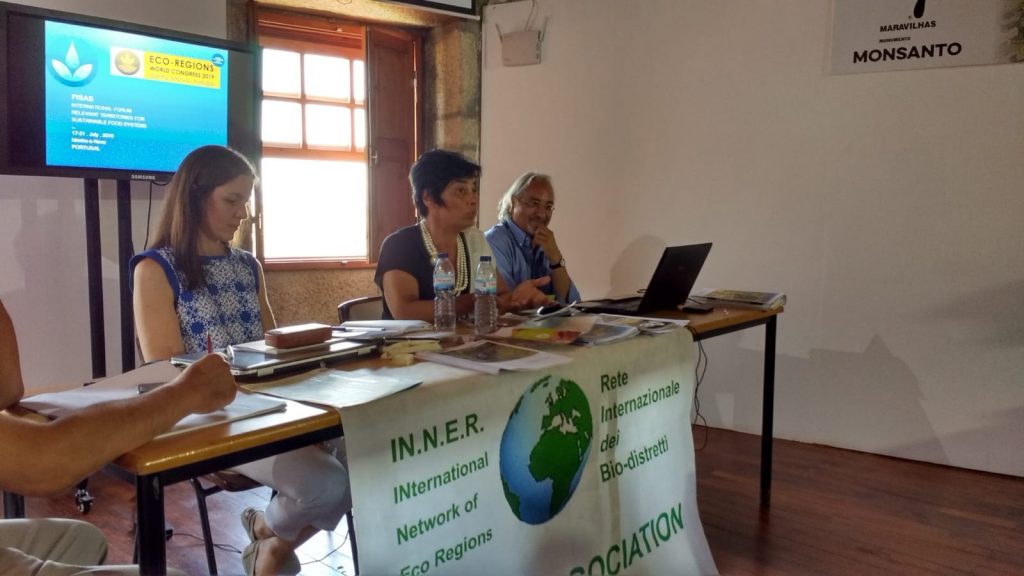
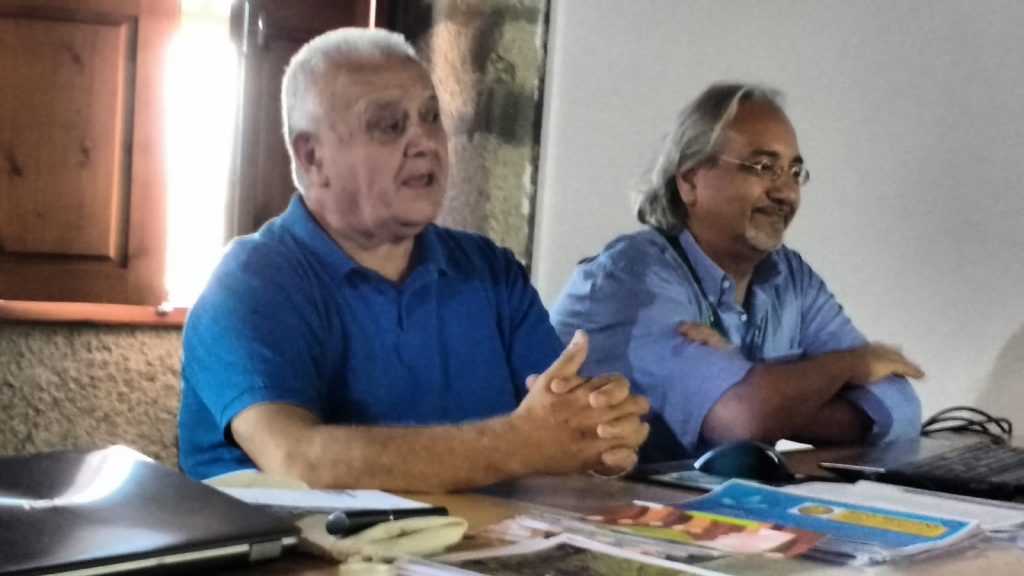
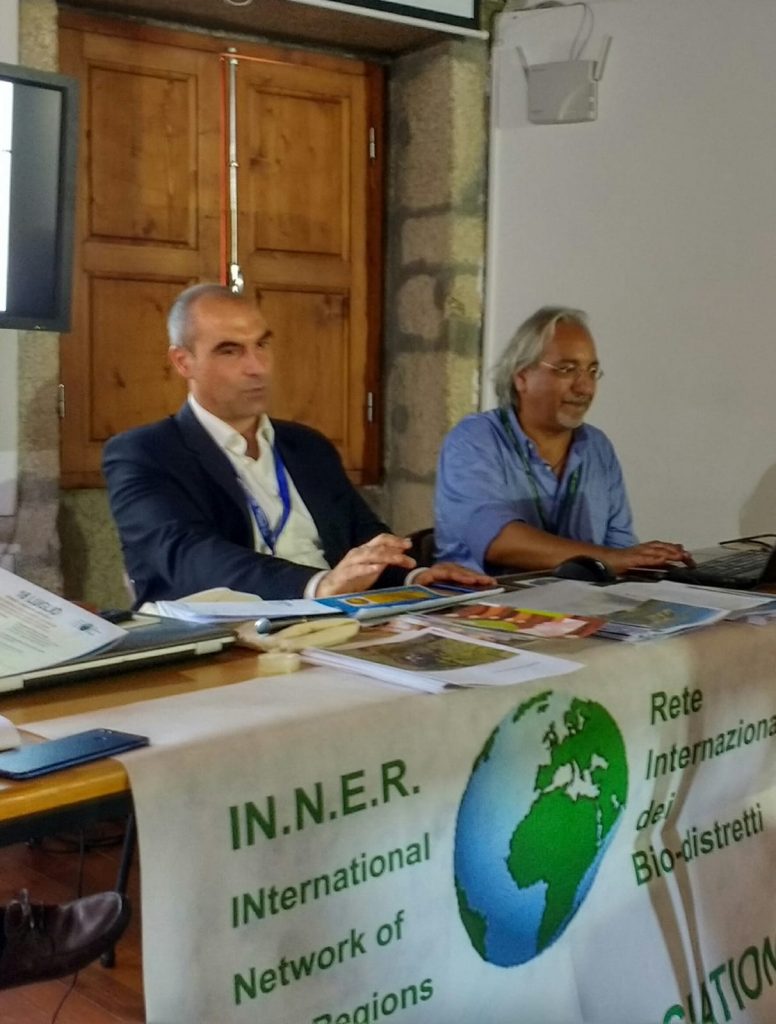
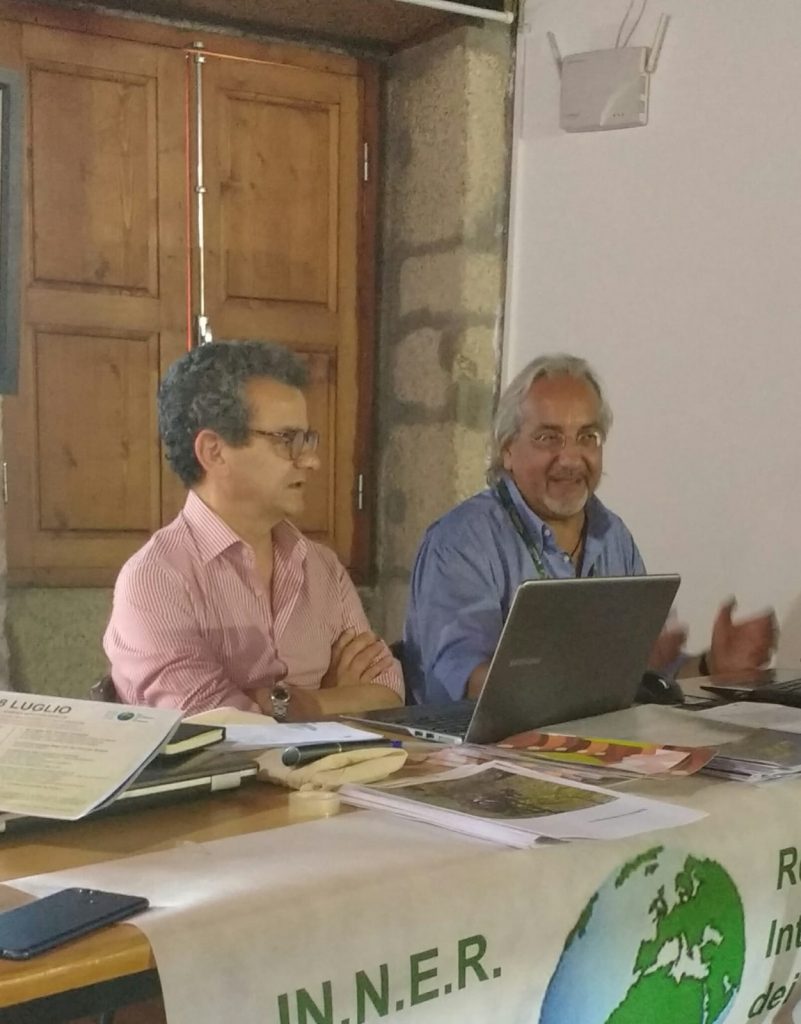
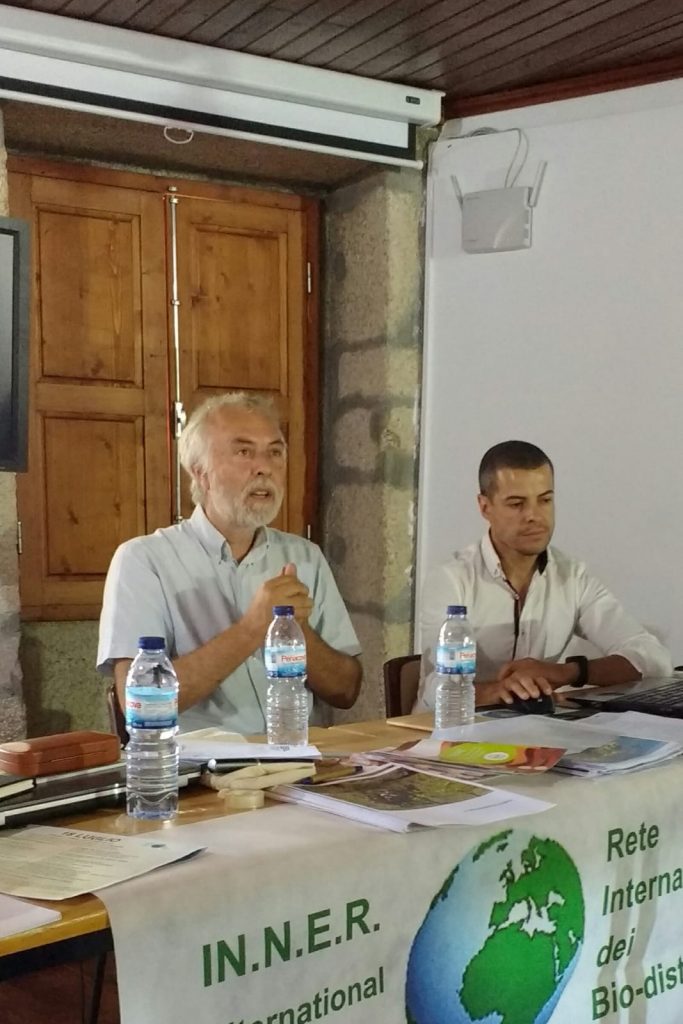
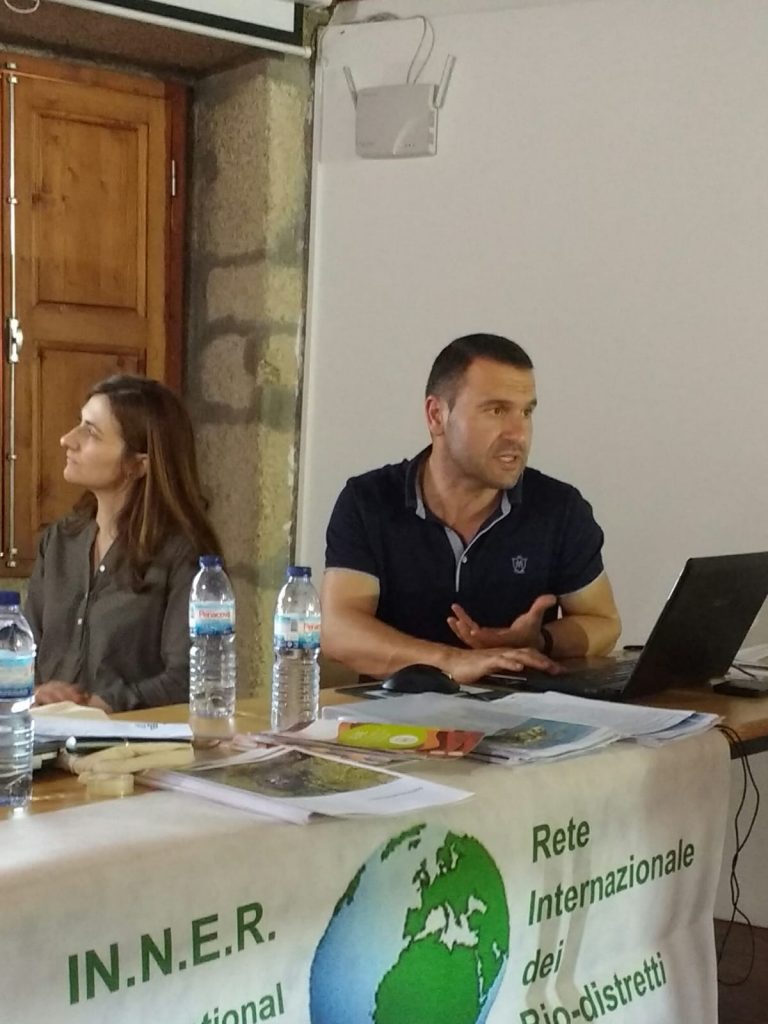
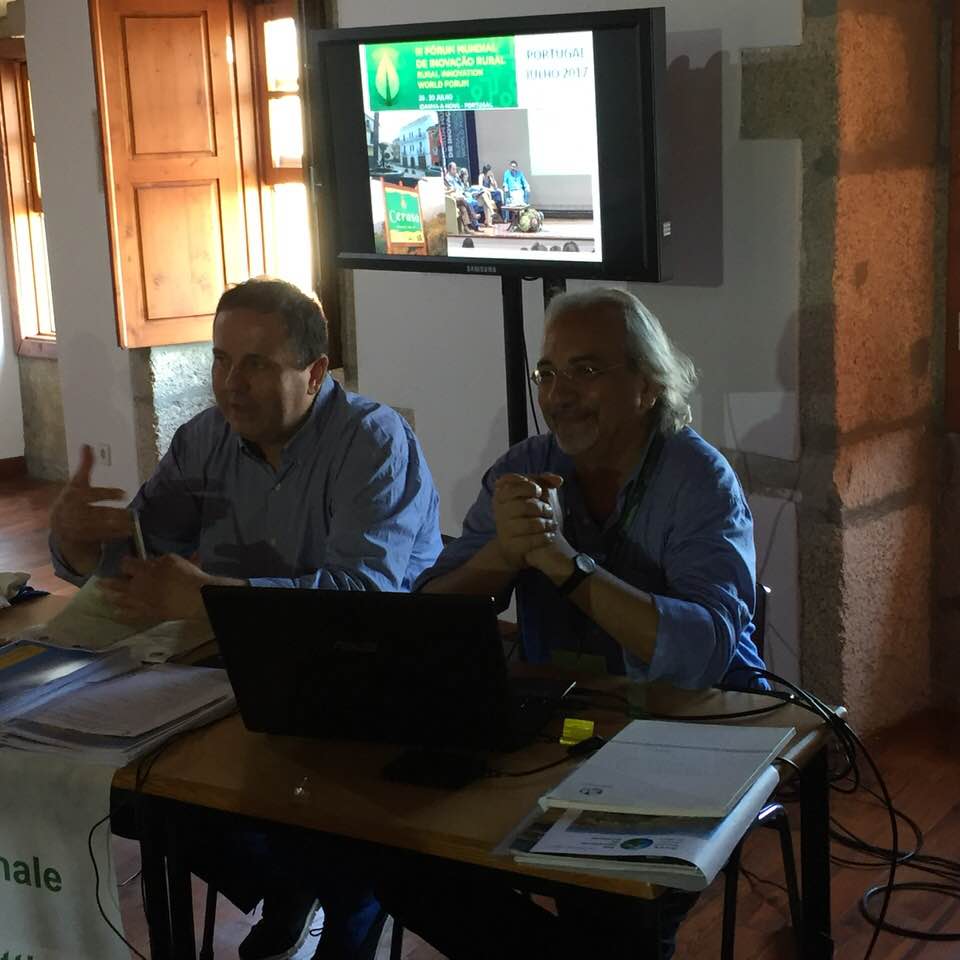
Below are some photos of the day of the Congress on 20 July.
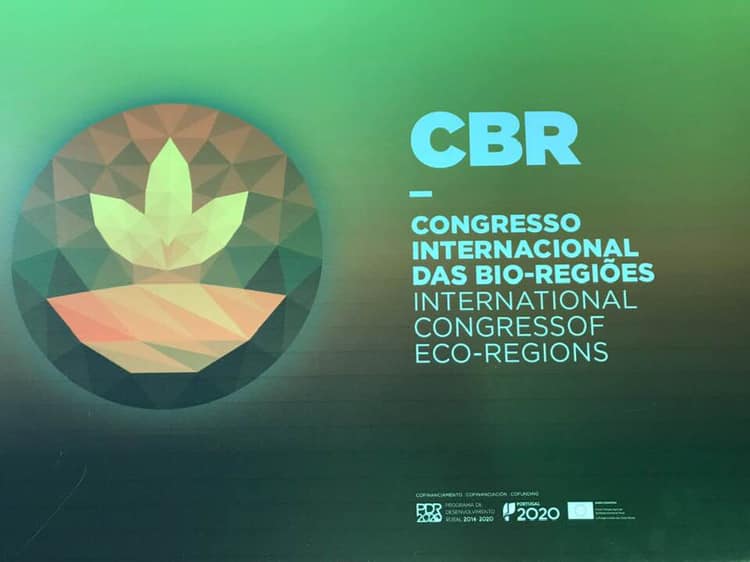
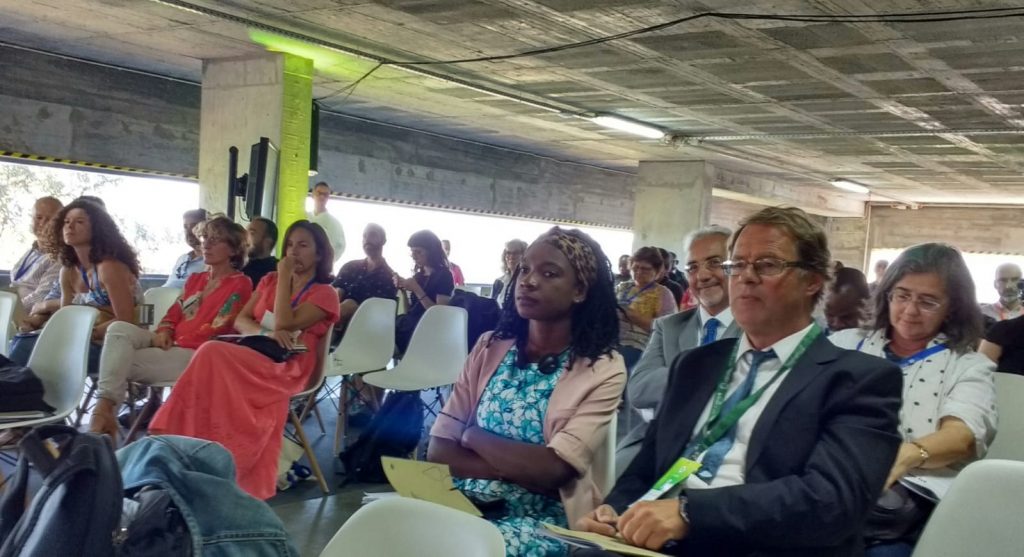
In the first line: Ohemaa Agbolosoo Mensah, Jostein Hertwig (OFSP)
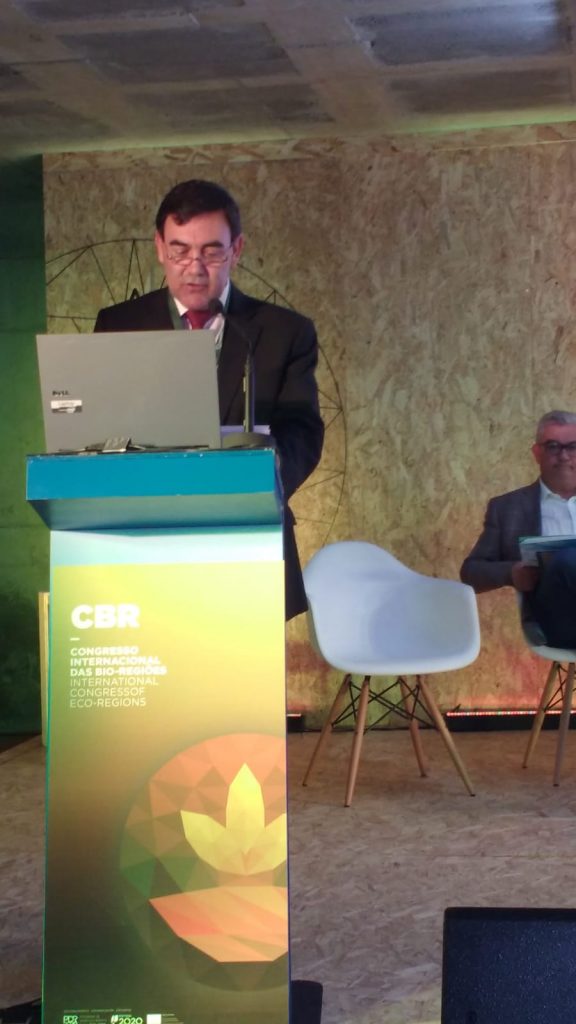
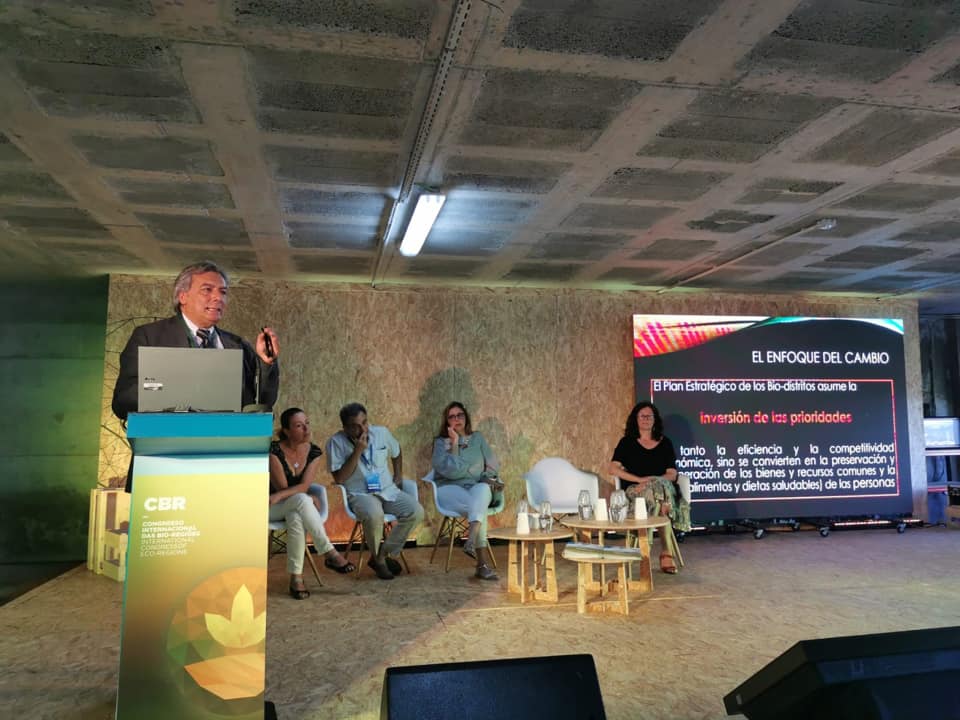
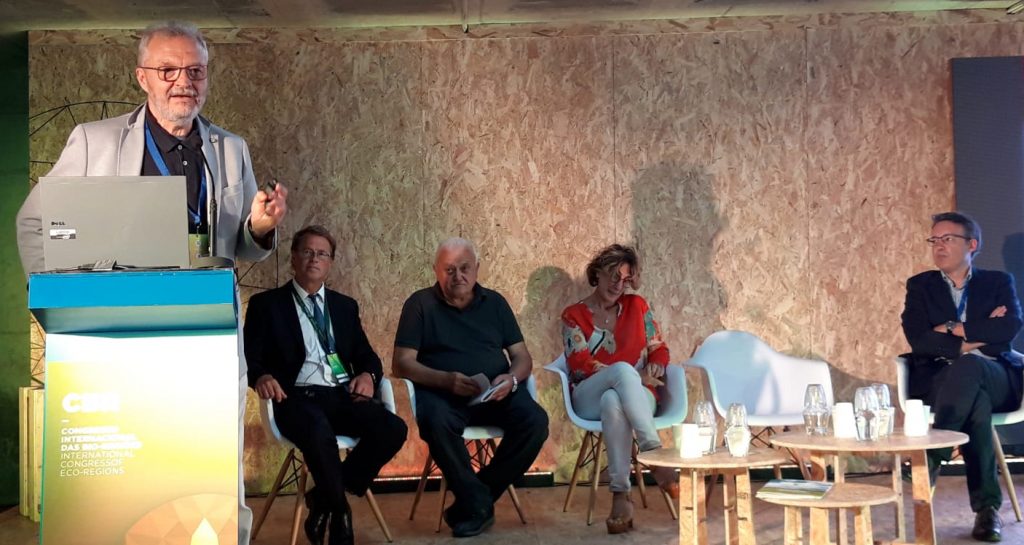
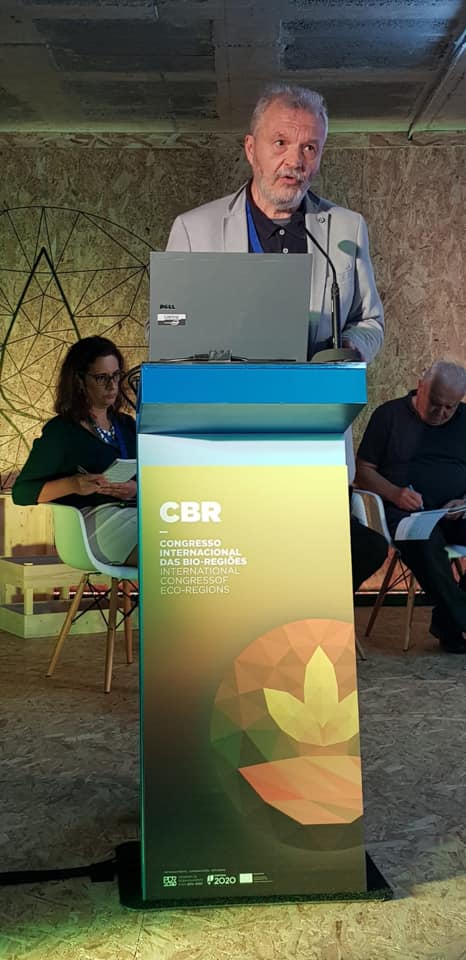
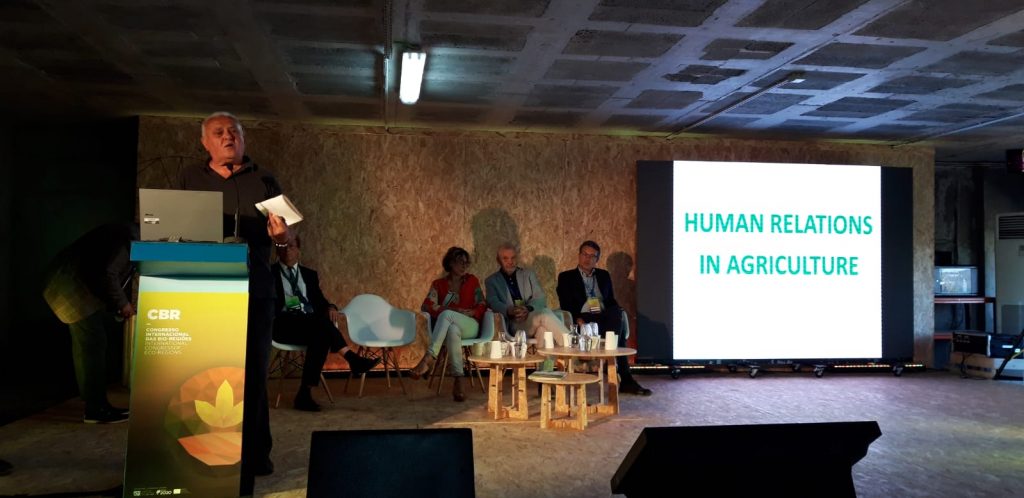
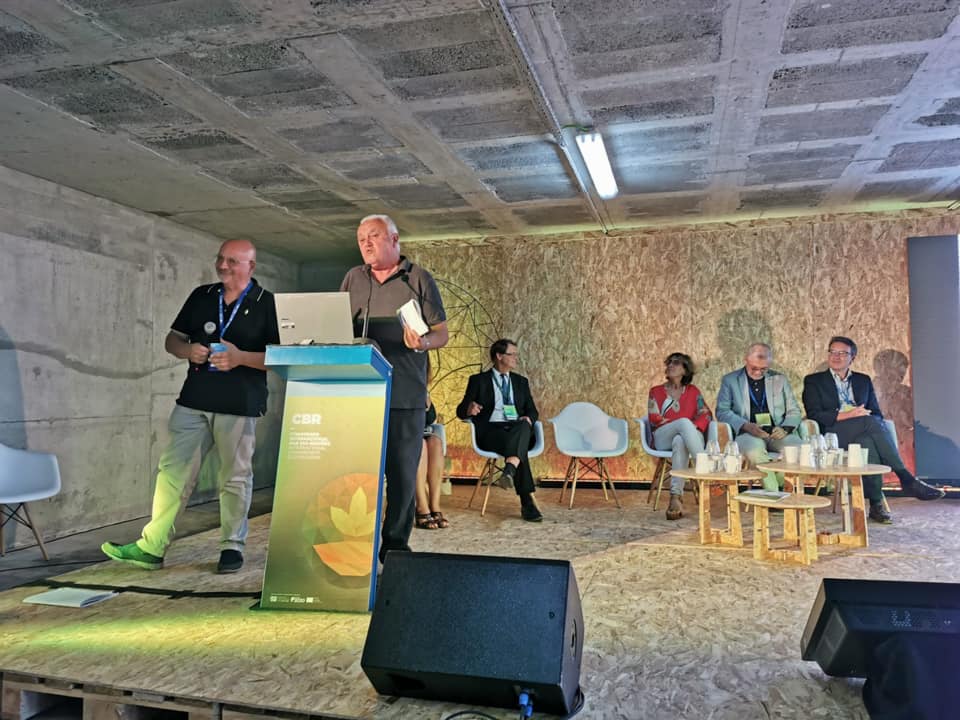
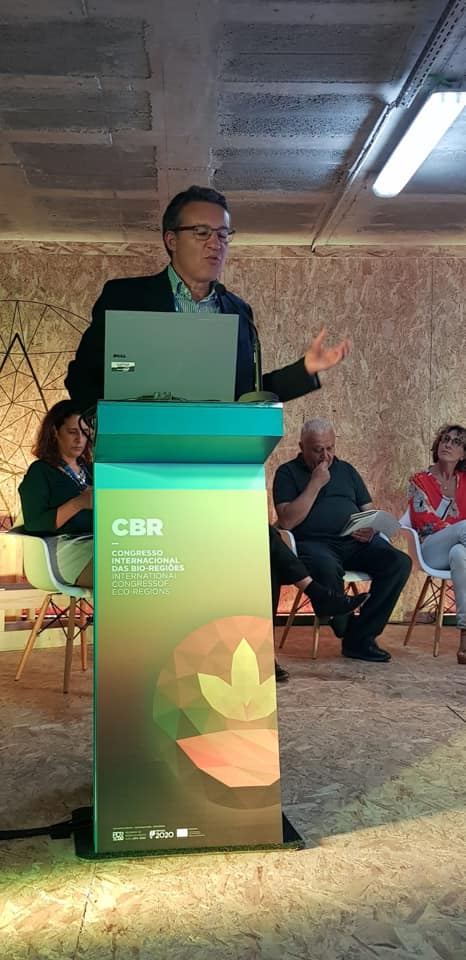
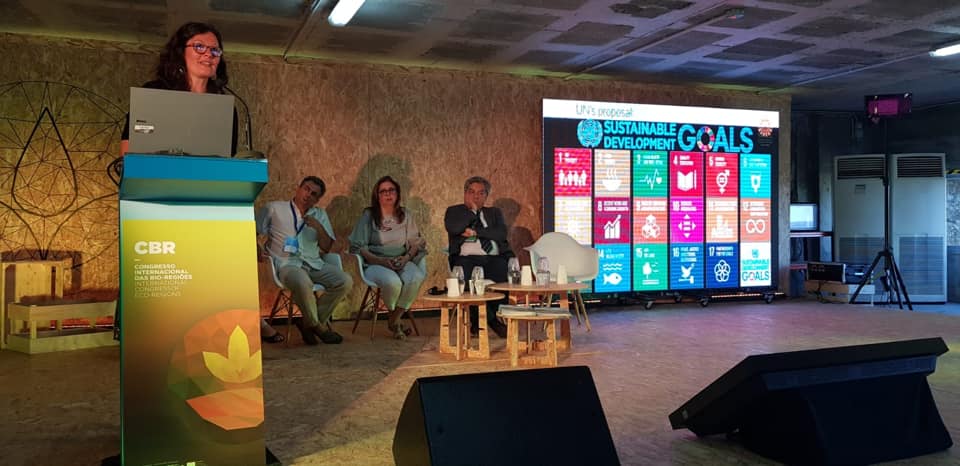
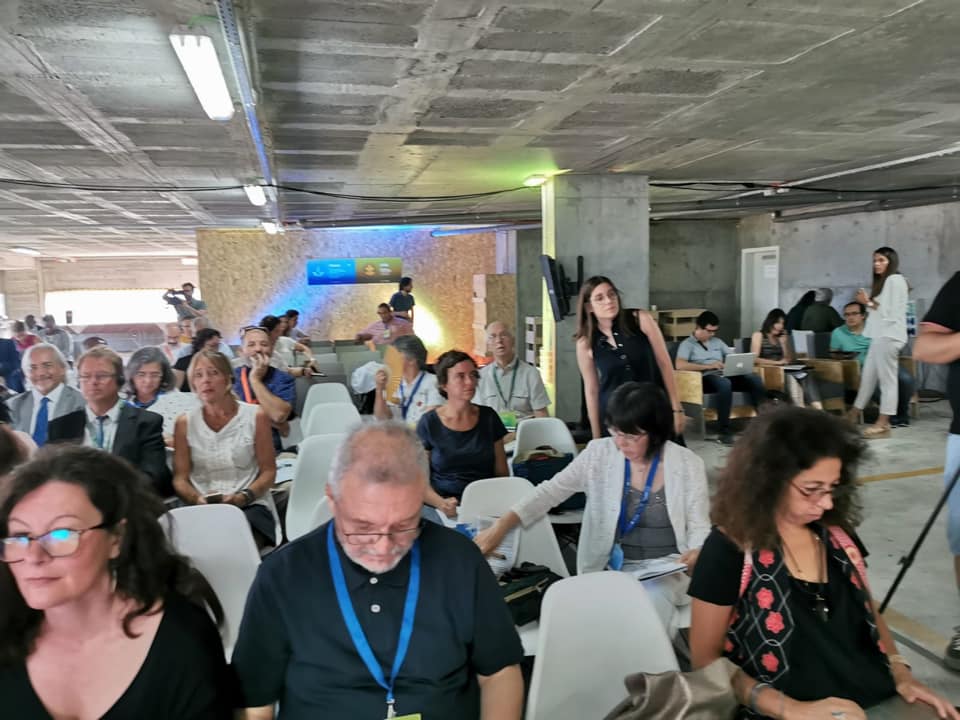
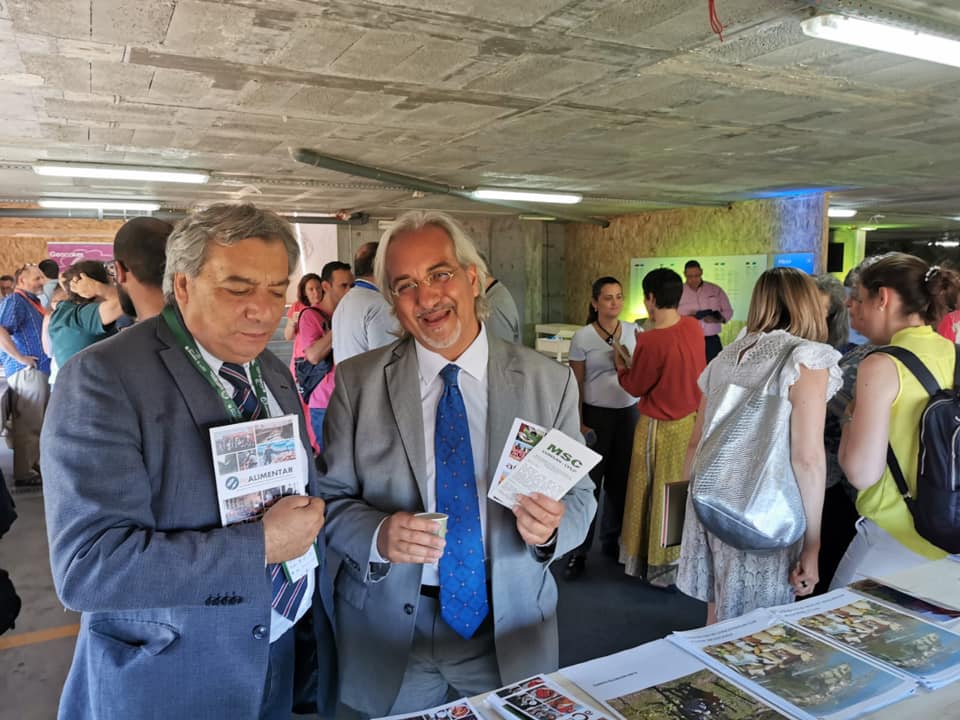
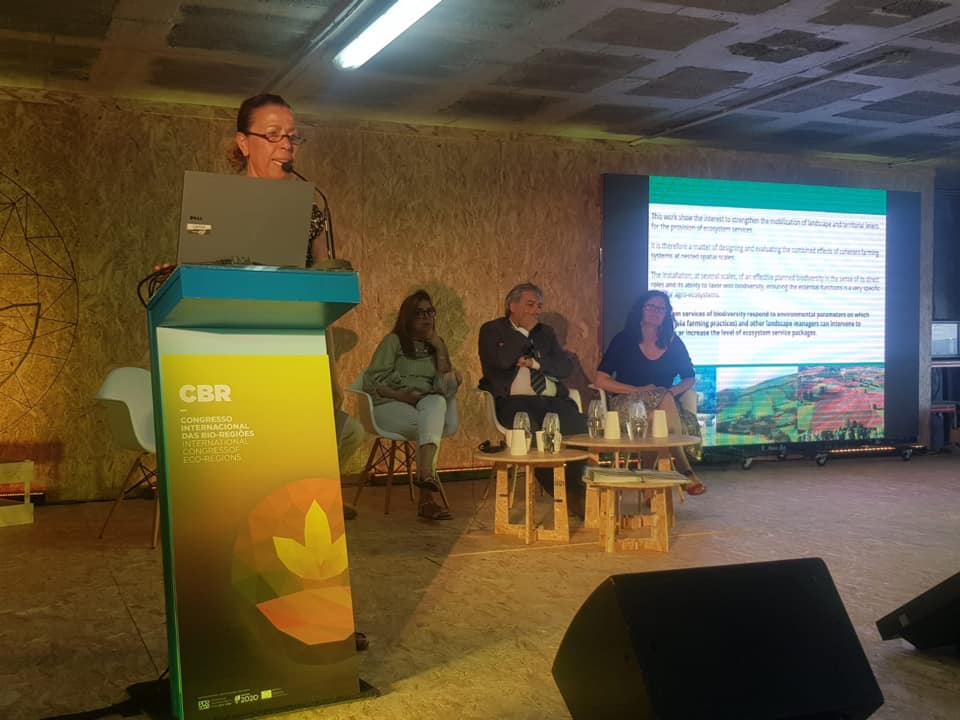
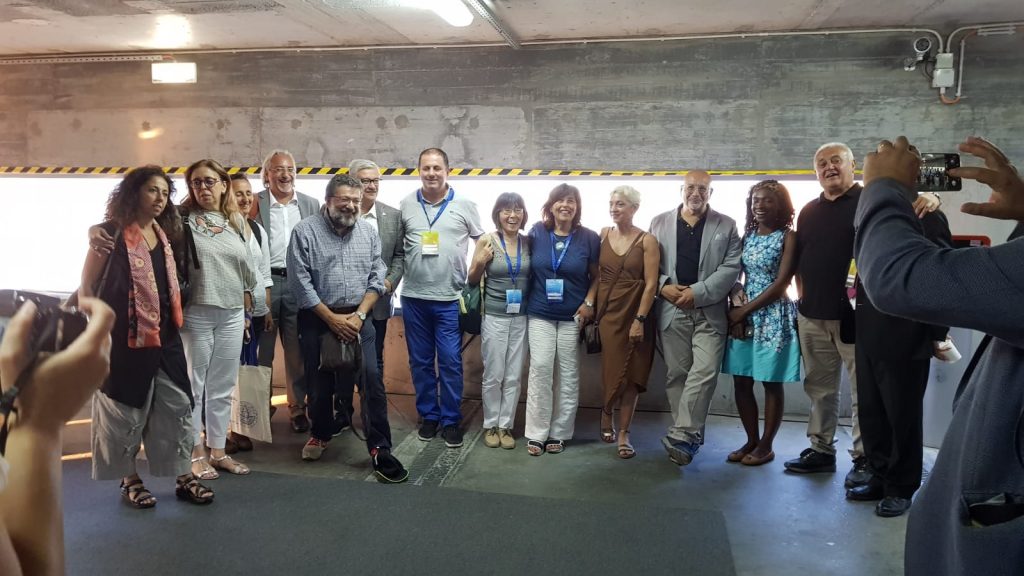
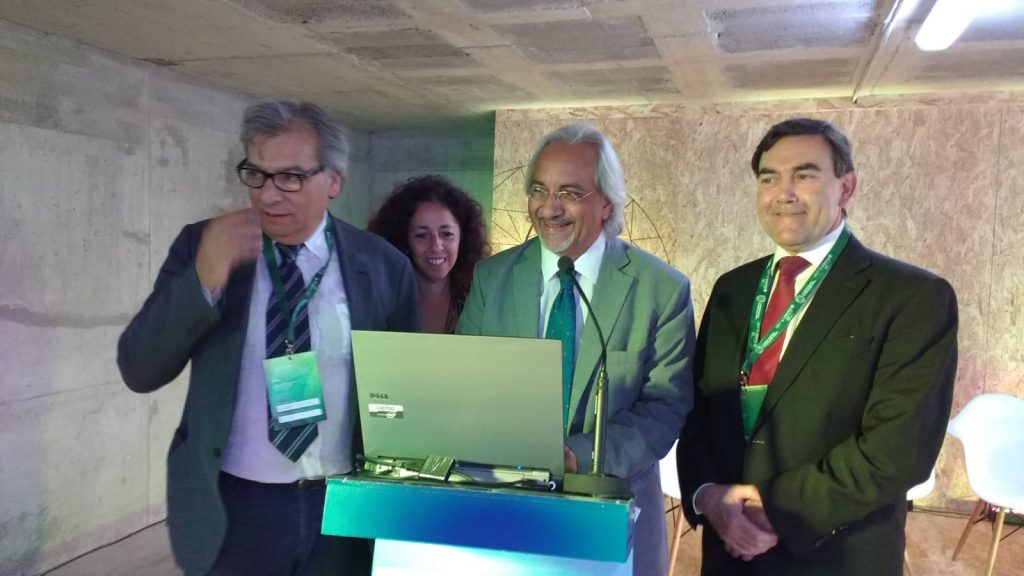
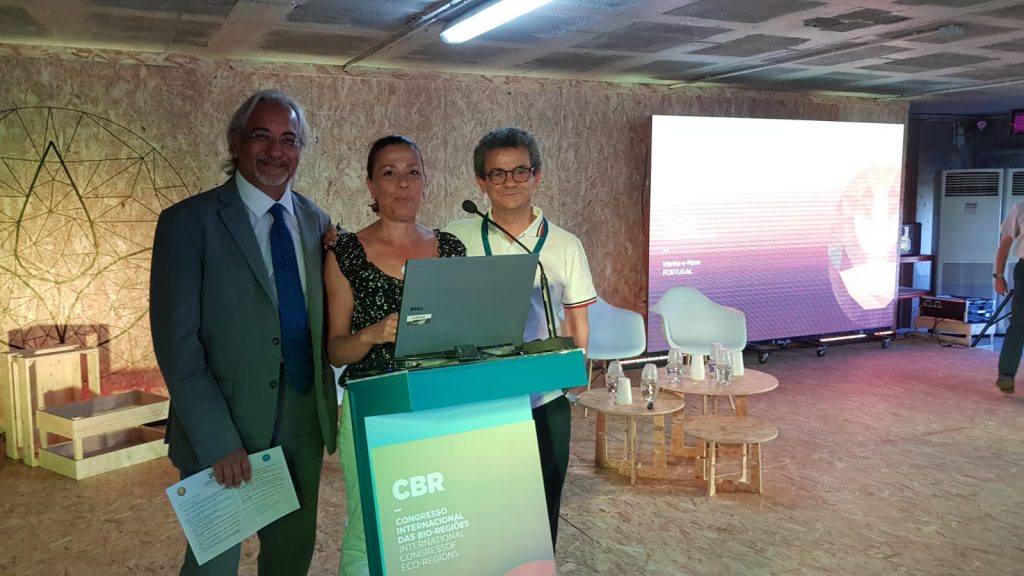
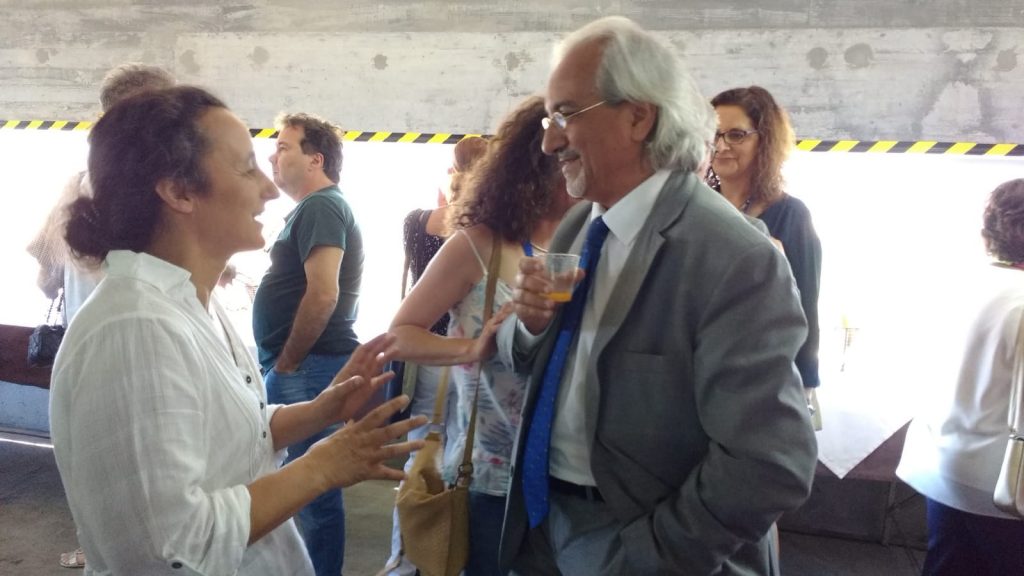
Conclusions
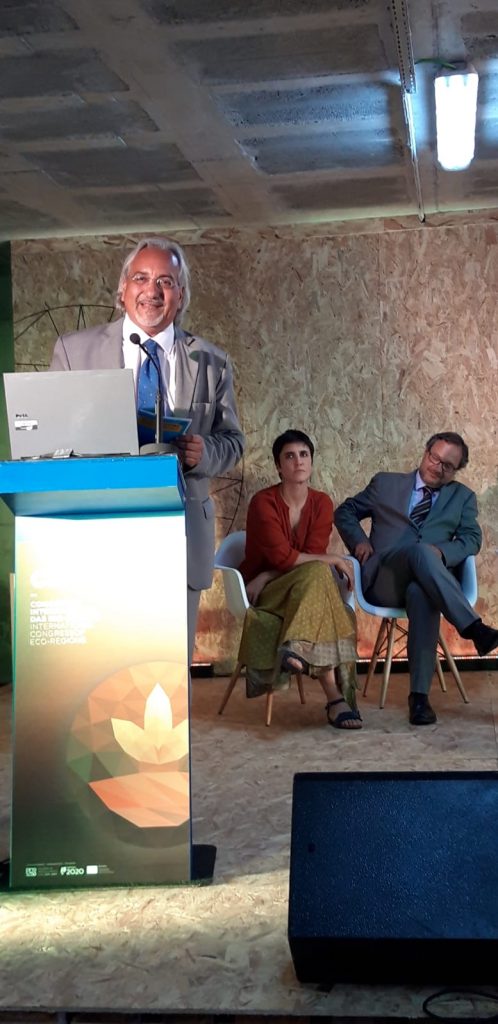
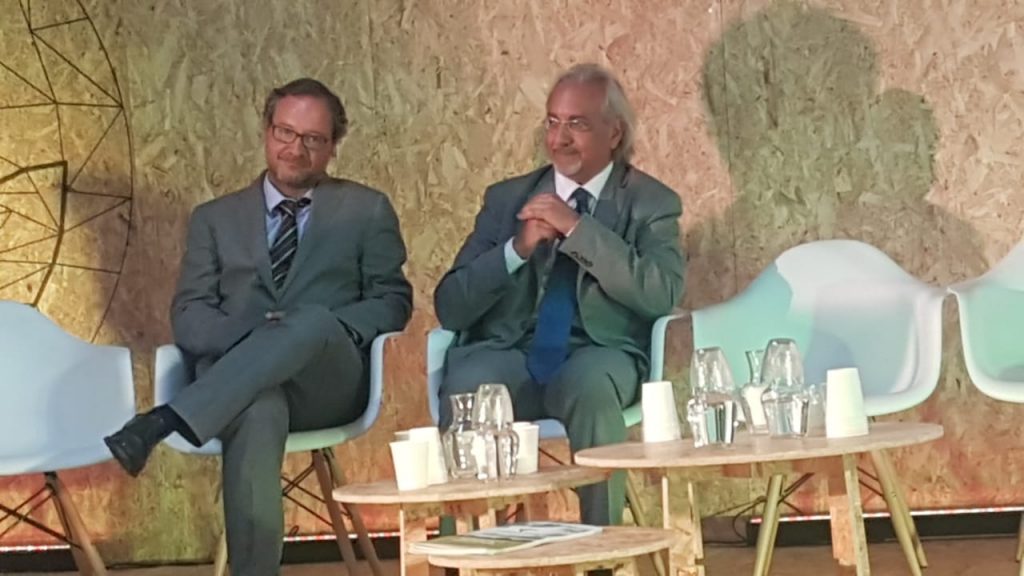
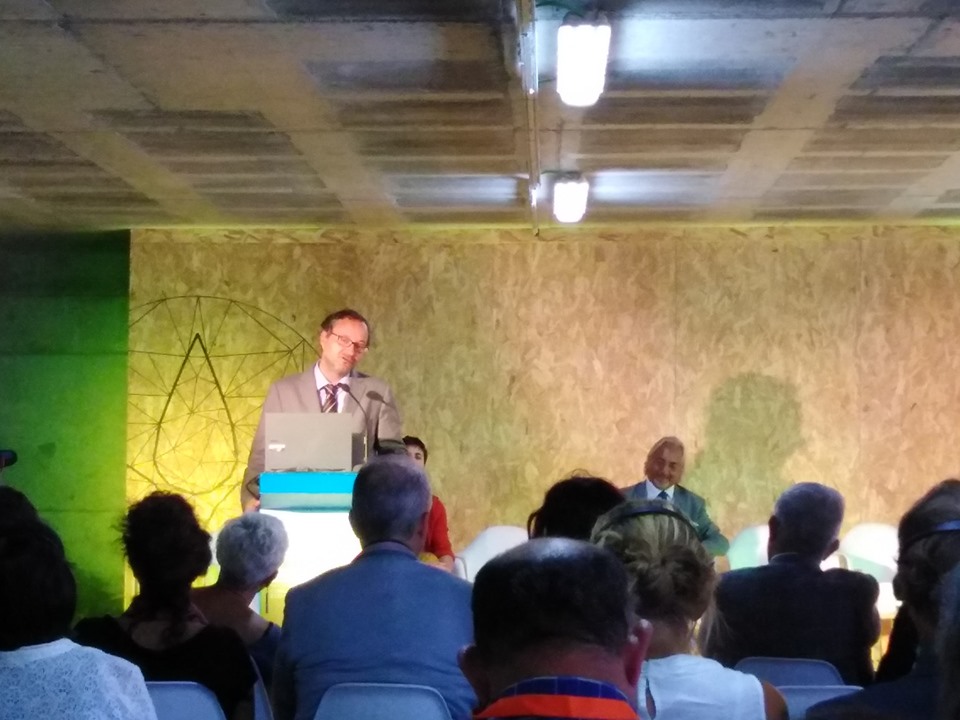
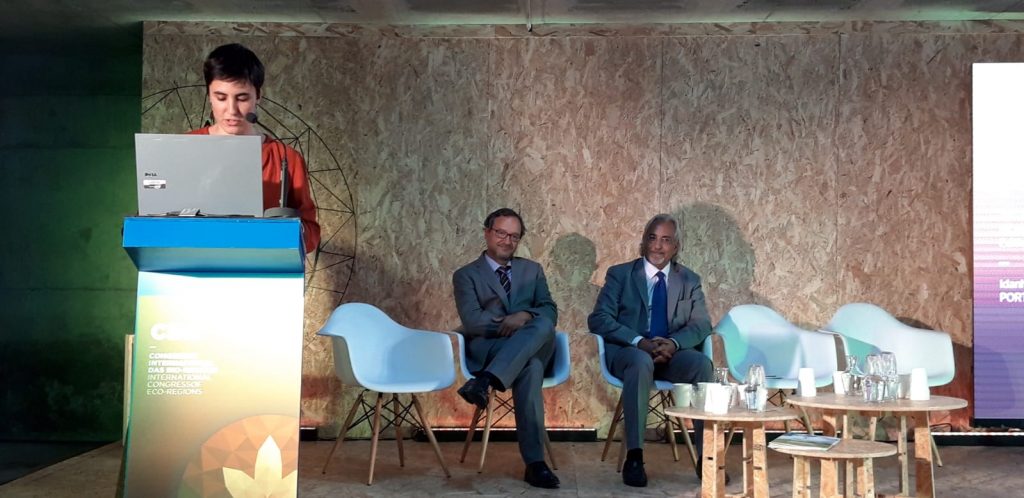
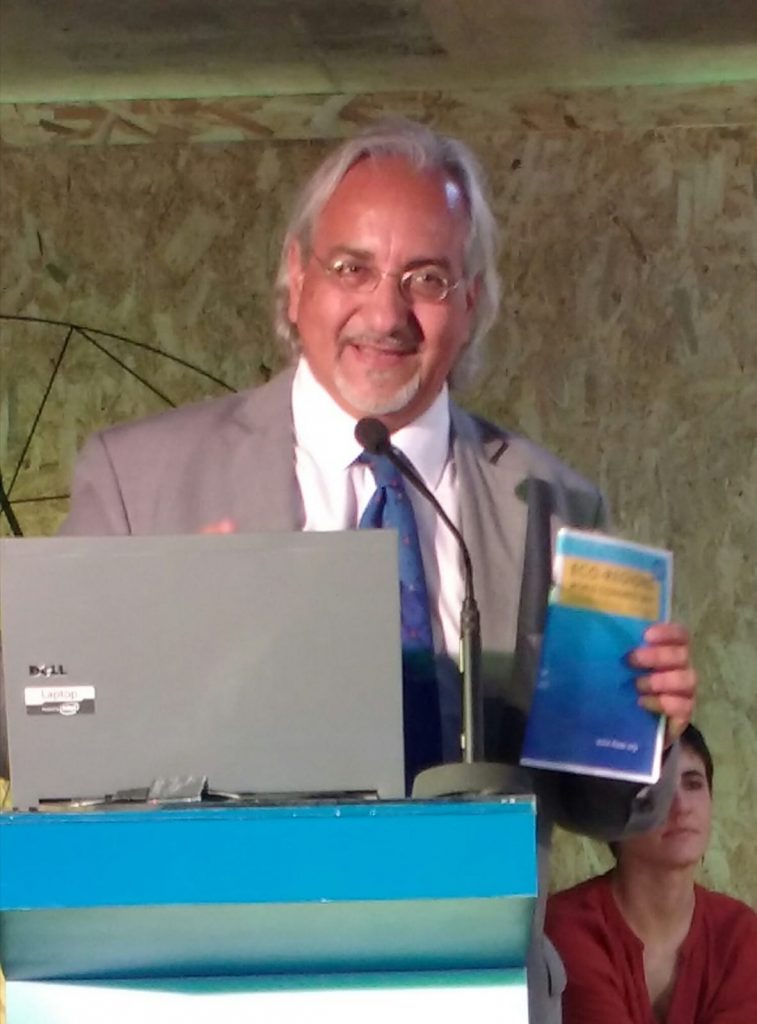
In Monsanto/Idanha in Nova there were important moments of discussion and exchange of experiences between hundreds of delegates from all over the world, but also moments of fun and cultural exchange, in the village equipped for the Feira Raiana.
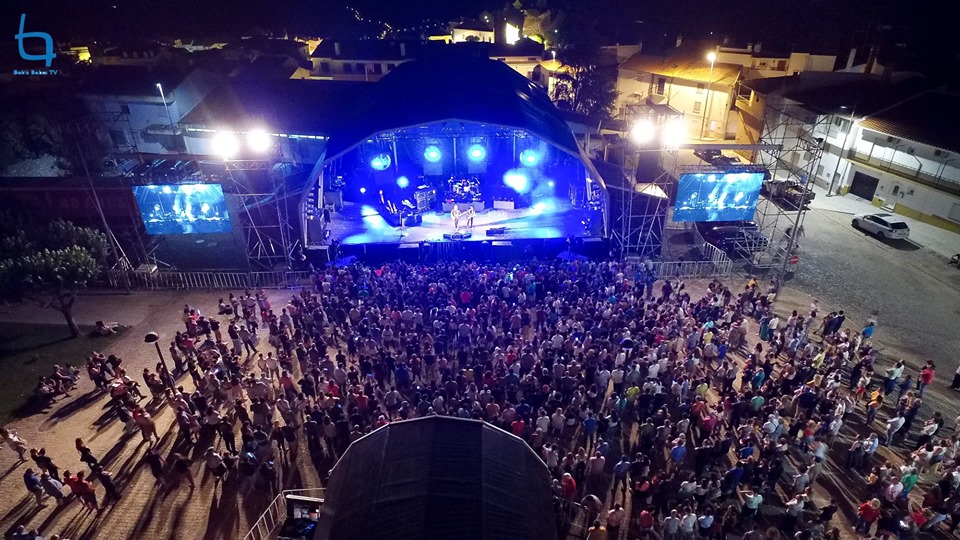

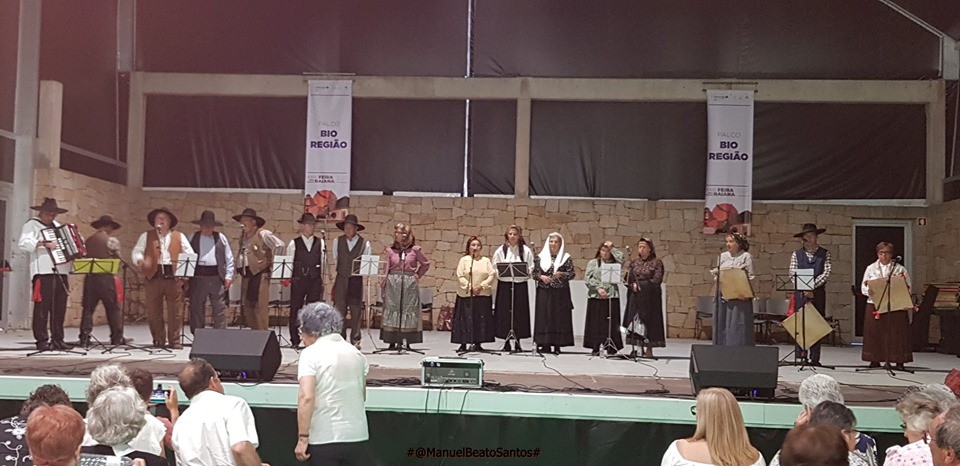
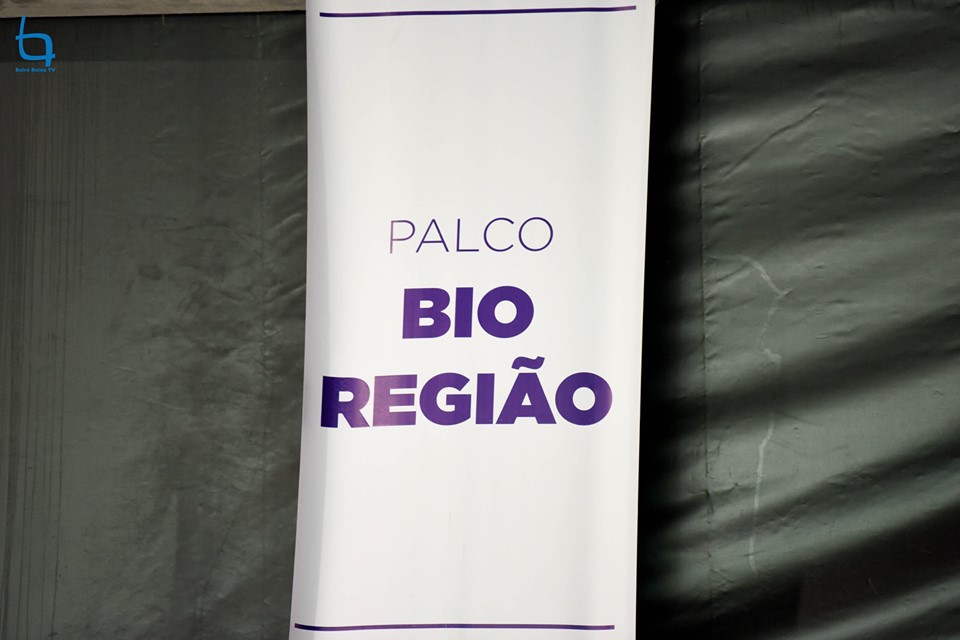
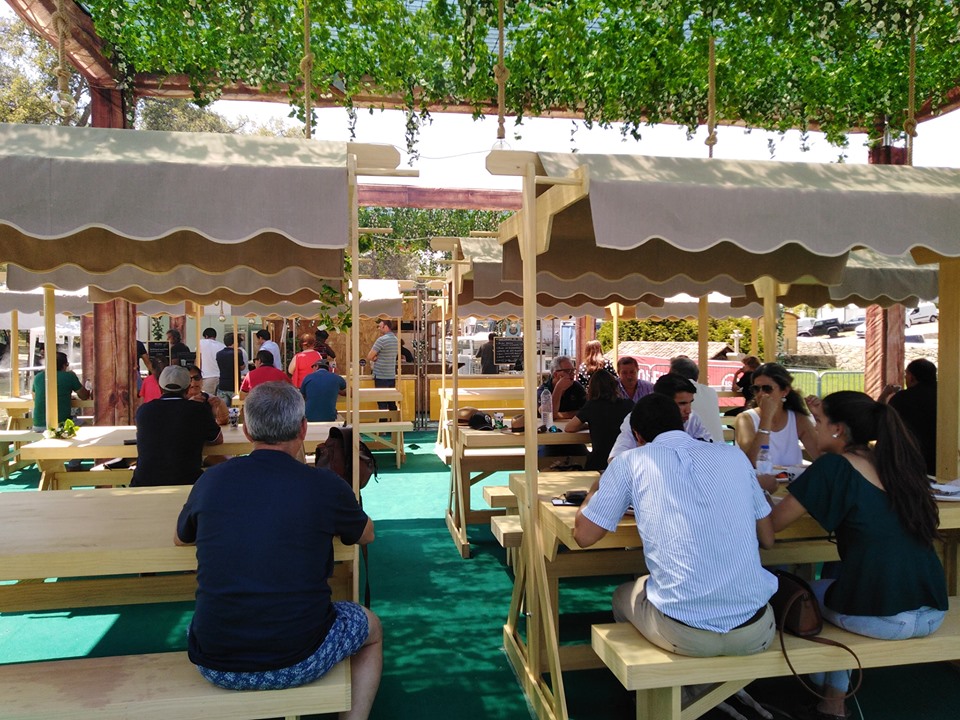
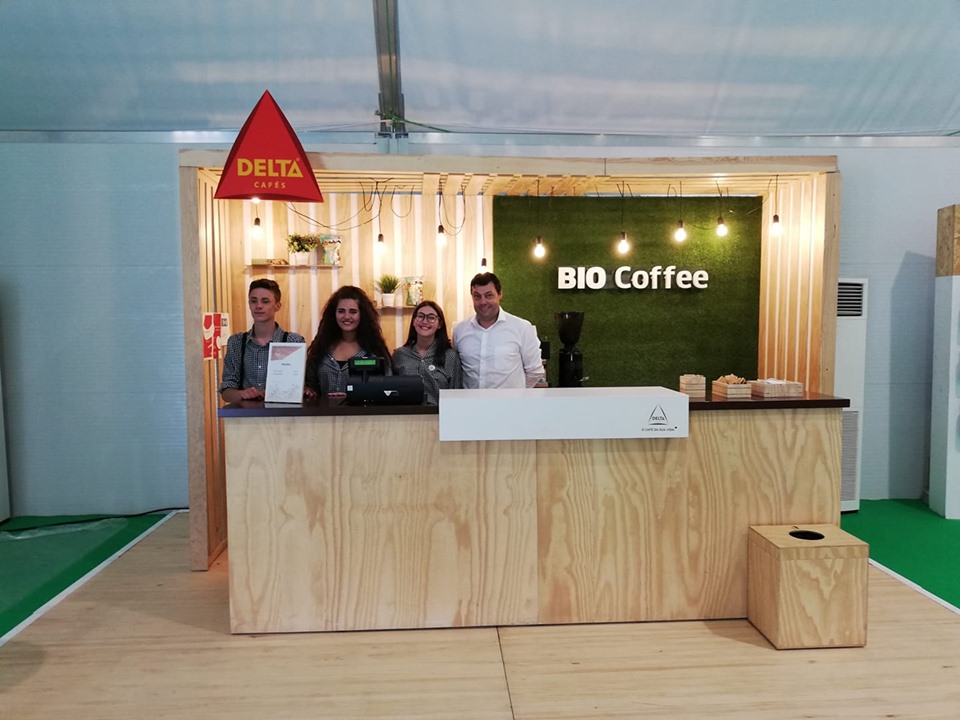
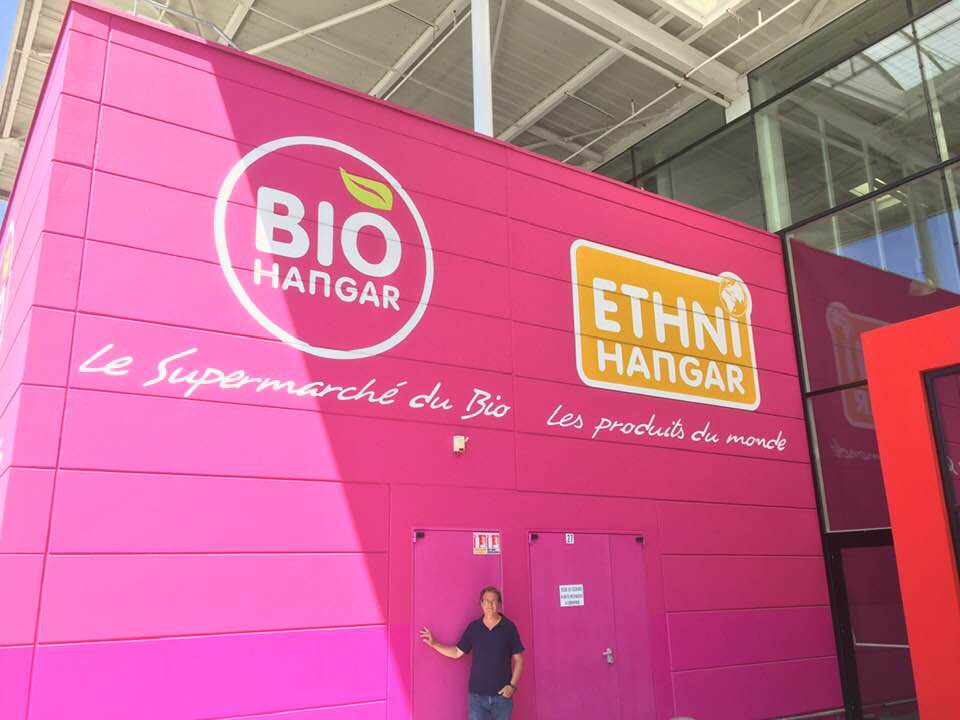
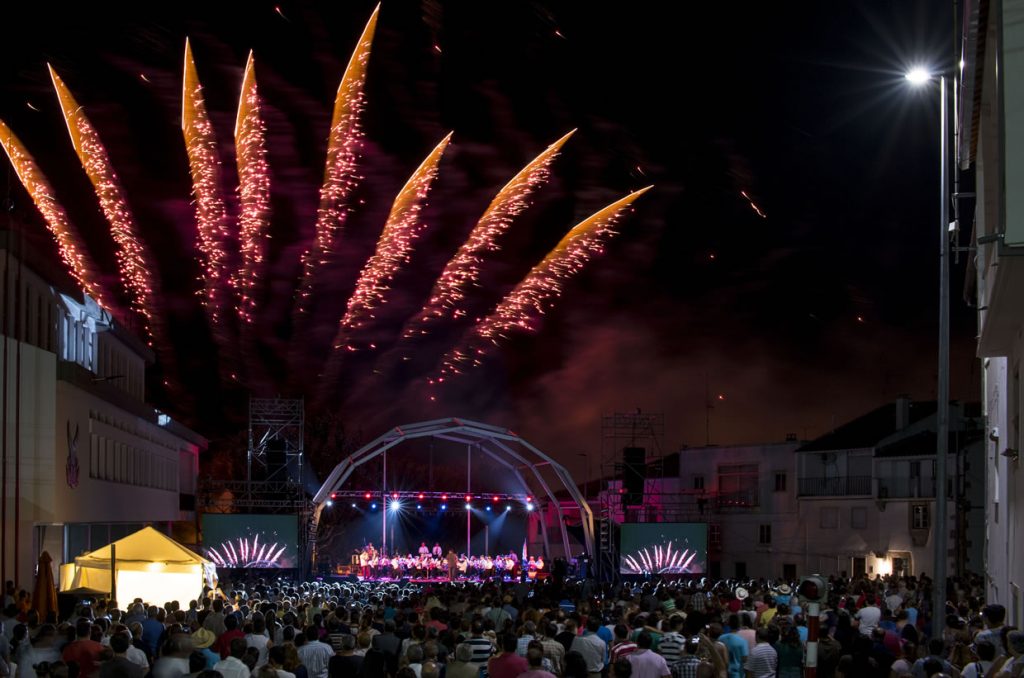
The press and telecameras worldwide followed the event with great attention
